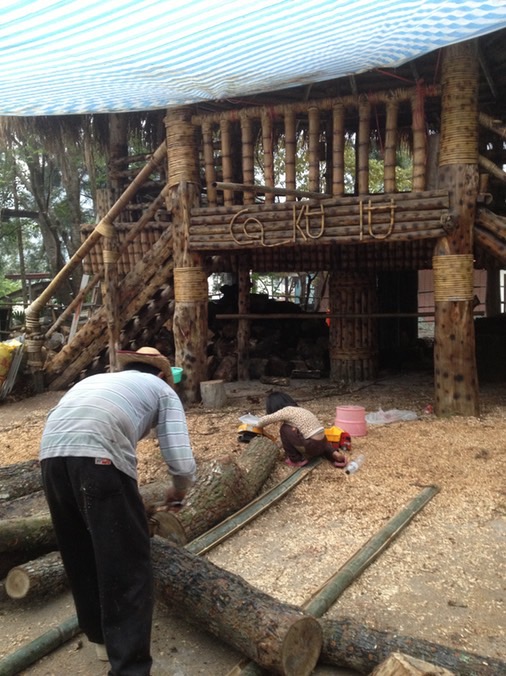1 Internal
1.1 Speakers
There are only very few native Kanakanavu speakers left: we counted 7 in the field from the beginning of our fieldwork in 2013. There are some relatives of Bunun origin who can understand some Kanakanavu, but these are very few, too. The language is considered to be moribund.
1.2 Stratification

Since there are only few speakers left and all of old age, the conversational domains in Kanakanavu are limited. The youngest are already in their 60ies and usually among Bunun speakers, so Kanakanavu is used seldom in everyday communication. †There is just one family left where a married couple is both Kanakanavu and speaking the language with one another in their house for everyday usage.
2 External
2.1 Competing languages
About 60 % of the population in the village are Bunun (Lin 2007:33), and this is the ratio within most families in the reagion, too. This is the reason for the rapid loss of the language: the people use Bunun rather than Kanakanavu in their homes in order to make everybody understand.
Chinese is the official language on the island: All media are in Mandarin Chinese, many people in the south are also proficient in Min-Nan Chinese, a Chinese language of Fujian immigrants. Some old people are still able to speak Japanese from the Japanese colonial period.
2.2 Status of the language
The language is not used for daily conversation except in a few families (e.g. the Ka’angena family where a married couple is Kanakanavu). It is used at cultural festivals for rituals, songs and names of the rituals itself.†
The prestige of the language is not very high; it used to be repressed during the Japanese colonial period and after world war II until the late 1980s. Since the 1990’s, awareness of their own cultural heritage (and the language) has been rising among the people. Since 2003, a language revitalizing program has been in existence.†
Quite recently, an online dictionary Kanakanavu-Chinese was built and is available under this†link. The Kanakanavu language documentation project is in contact with the editor of this dictionary, and mutual support has been agreed upon. We will help the dictionary editor to provide more entries or give suggestions in transcription mode.†